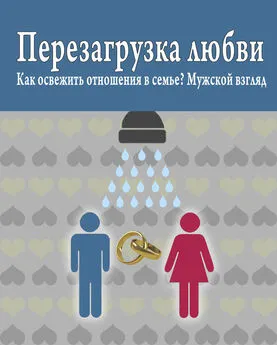Брюс Фейлер - Секреты счастливых семей. Мужской взгляд
- Название:Секреты счастливых семей. Мужской взгляд
- Автор:
- Жанр:
- Издательство:Array Литагент «Альпина»
- Год:2014
- Город:Москва
- ISBN:978-5-9614-3499-6
- Рейтинг:
- Избранное:Добавить в избранное
-
Отзывы:
-
Ваша оценка:
Брюс Фейлер - Секреты счастливых семей. Мужской взгляд краткое содержание
Секреты счастливых семей. Мужской взгляд - читать онлайн бесплатно полную версию (весь текст целиком)
Интервал:
Закладка:
Ling, Rich. The Mobile Connection: The Cell Phone’s Impact on Society. San Francisco: Morgan Kaufmann, 2004.
_____. New Tech, New Ties: How Mobile Communication Is Reshaping Social Cohesion. Cambridge, MA: MIT, 2008.
Luker, Rich. Living Simple Community / Building Simple Community. St. Petersburg, FL: Tangeness, 2009.
Lyubomirsky, Sonja. The How of Happiness: A Scientific Approach to Getting the Life You Want. New York: Penguin, 2008.
Marcus, Clare Cooper. House as a Mirror of Self: Exploring the Deeper Meaning of Home. Berkeley, CA: Conari, 1995.
McFadden, Joyce T. Your DauIter’s Bedroom: Insights for Raising Confident Women. New York: Palgrave Macmillan, 2011.
McGonigal, Jane. Reality Is Broken: Why Games Make Us Better and How They Can Change the World. New York: Penguin, 2011.
McNeill, William Hardy. Keeping Together in Time: Dance and Drill in Human History. Cambridge, MA: Harvard University Press, 1995.
Meeker, Margaret J. Strong Fathers, Strong Daughters: 10 Secrets Every Father Should Know. Washington, DC: Regnery Publishing, 2006.
Mintz, Steven. Huck’s Raft: A History of American Childhood. Cambridge, MA: Belknap Press, 2004.
Minuchin, Salvador. Families and Family Therapy. London: Routledge, 1991.
Mitchell, Stephen A. Can Love Last? The Fate of Romance Over Time. New York: W. W. Norton, 2002.
Mogel, Wendy. The Blessing of a Skinned Knee: Using Jewish Teachings to Raise Self-Reliant Children. New York: Scribner, 2001.
Mortimer, Jeylan T. Working and Growing Up in America. Cambridge, MA: Harvard University Press, 2003.
Nass, Clifford, and Corina Yen. The Man Who Lied to His Laptop: What Machines Teach Us About Human Relationships. New York: Current, 2010.
Nass, Clifford Ivar, and Scott Brave. Wired for Speech: How Voice Activates and Advances the Human-Computer Relationship. Cambridge, MA: MIT, 2005.
Notkin, Melanie. Savvy Auntie: The Ultimate Guide for Cool Aunts, Great-Aunts, Godmothers, and All Women Who Love Kids. New York: William Morrow, 2011.
Nowicki, Steyhe T., Morshall P. Duke, and Amy Van Buren. Starting Kids Off Right: How to Raise Confident Children Who Can Make Friends and Build Healthy Relationships. Atlanta: Peachtree, 2008.
Owen, David. The First National Bank of Dad: The Best Way to Teach Kids About Money. New York: Simon & Schuster, 2003.
Parker-Pope, Tara. For Better: The Science of a Good Marriage. New York: Dutton, 2010.
Pasanella, Marco. Uncorked: My Journey Through the Crazy World of Wine. New York: Clarkson Potter, 2012.
Patterson, Kerry, Joseph Grenny, Al Switzler, and Ron McMillan. Crucial Conversations. New York: McGraw-Hill, 2012.
Perel, Esther. Mating in Captivity: Unlocking Erotic Intelligence. New York: Harper, 2007.
Phelan, Thomas W. 1-2-3 Magic: Effective Discipline for Children 2–12. Glen Ellyn, IL: ParentMagic, 2003.
Pink, Daniel H. Drive: The Surprising Truth About What Motivates Us. New York: Riverhead, 2009.
A Whole New Mind: Why Right-Brainers Will Rule the Future. New York: Riverhead, 2006.
Pinker, Steven. The Language Instinct. New York: William Morrow, 1994.
Powers, William. Hamlet’s Blackberry: A Practical Philosophy for Building a Good Life in the Digital Age. New York: Harper, 2010.
Pronovost, Peter J., and Eric Vohr. Safe Patients, Smart Hospitals: How One Doctor’s Checklist Can Help Us Change Health Care from the Inside Out. New York: Hudson Street, 2010.
Provine, Robert R. Laughter: A Scientific Investigation. New York: Viking, 2000.
Quartz, Stevey, and Terrence J. Sejnowski. Liars, Lovers, and Heroes: What the New Brain Science Reveals About How We Become Who We Are. New York: William Morrow, 2002.
Quindlen, Anna. Living Out Loud. New York: Random House, 1988.
Rathje, William L., and Cullen Murphy. Rubbish!: The Archaeology of Garbage. New York: HarperCollins, 1992.
Remen, Rachel Naomi. Kitchen Table Wisdom: Stories That Heal. New York: Riverhead, 1996.
Resh, Evelyn K., and Beverly West. The Secret Lives of Teen Girls: What Your Mother Wouldn’t Talk About But Your Daughter Needs to Know. Carlsbad, CA: Hay House, 2009.
Restak, Richard M. The Naked Brain: How the Emerging Neurosociety Is Changing How We Live, Work, and Love. New York: Harmony, 2006.
Ridley, Matt. The Red Queen: Sex and the Evolution of Human Nature. New York: Macmillan, 1994.
Ripken, Cal, and Larry Burke. The Ripken Way: A Manual for Baseball and Life. New York: Pocket, 1999.
Rubin, Gretchen Craft. The Happiness Project. New York: HarperCollins, 2010.
Ryan, Christopher, and Cacilda Jetha. Sex at Dawn: The Prehistoric Origins of Modern Sexuality. New York: Harper, 2010.
Sapolsky, Robert M. Why Zebras Don’t Get Ulcers. New York: Henry Holt, 2004.
Sargent, Ted. The Dance of Molecules: How Nanotechnology Changing Our Lives. New York: Thunder’s Mouth, 2006.
Sawyer, R. Keith. Explaining Creativity: The Science of Human Innovation. Oxford: Oxford University Press, 2006.
Schnarch, David Moreis. Passionate marriage: Keeping Love and Intimacy Alive in Committed Relationships. Brunswick, Australia: Scribe Publications, 2012.
Seligman, Martin E. P. Flourish: A Visionary New Understanding of Happiness and Well-Being. New York: Free Press, 2011.
Sherwood, Ben. The Survivors Club: The Secrets and Science That Could Save Your Life. New York: Grand Central Publishing, 2009.
Siegel, Daniel J., and Tina Payne Bryson. The Whole-Brain Child: 12 Revolutionary Strategies to Nurture Your Child’s Developing Mind. New York: Delacorte Press, 2011.
Sommer, Robert. Personal Space: The Behavioral Basis of Design. Bristol: Bosko, 2007.
Soueif, Ahdaf. The Map of Love. New York: Anchor, 2000.
Stiffelman, Susan. Parenting Without Power Struggles: Raising Joyful, Resilient Kids While Staying Calm, Cool and Connected. New York: Atria Books, 2012.
Stone, Douglas, Bruce Patton, and Sheila Heen. Difficult Conversations: How to Discuss What Matters Most. New York: Viking, 1999.
Surowiecki, James. The Wisdom of Crowds. New York: Anchor, 2005.
Szalavitz, Maia, and Bruce Duncan Perry. Born for Love: Why Empathy Is Essential – and Endangered. New York: William Morrow, 2010.
Taffel, Ron. Childhood Unbound: Saving Our Kids’ Best Selves – Confident Parenting in a World of Change. New York: Free Press, 2009.
Taffel, Ron, and Melinda Blau. Parenting By Heart: How to Stay Connected to Your Child in a Disconnected World. Cambridge, MA: Perseus, 2002.
Tannen, Debarah. I Only Say This Because I Love You: Talking to Your Parents, Partner, Sibs, and Kids When You’re All Adults. New York: Ballantine, 2002.
Tannen, Deborah, Shari Kendall, and Cynthia Gordon. Family Talk: Discourse and Identity in Four American Families. Oxford: Oxford University Press, 2007.
Taylor, Ella. Prime-Time Families: Television Culture in Postwar America. Berkeley: University of California Press, 1989.
Thaler, Richard H., and Cass R. Sunstein. Nudge: Improving Decisions About Health, Wealth and Happiness. London: Penguin, 2009.
Thompson, Jim. The Double-Goal Coach: Positive Coaching Tools for Honoring the Game and Developing Winners in Sports and Life. New York: Harper, 2003.
_____. Elevating Your Game: Becoming a Triple-Impact Competitor. Portola Valley, CA: Balance Sports, 2011.
______Positive Sports Parenting: How “Second-Goal” Parents Raise Winners in Life Through Sports. Portola Valley, CA: Balance Sports, 2009.
Thurman, Robert A. F. Inner Revolution: Life, Liberty, and the Pursuit of Real Happiness. New York: Riverhead, 1998.
Turkle, Sherry. Alone Together: Why We Expect More from Technology and Less from Each Other. New York: Basic Books, 2011.
Underhill, Paco. Why We Buy: The Science of Shopping. New York: Simon & Schuster, 2009.
Ury, William. The Third Side: Why We Fight and How We Can Stop. NewYork: Penguin, 2000.
Viscott, David S. Emotional Resilience: Simple Truths for Dealing with the Unfinished Business of Your Peet. NewYork: Three Rivers Press, 1996.
Vonnegut, Kurt. Slapstick. New York: Delta Trade Paperbacks, 1999.
Weick, Karl E., and Kathleen M. Sutcliffe. Managing the Unexpected: Assuring High Performance in an Age of Complexity. San Francisco: Jossey-Bass, 2001.
Wolpe, David J. Teaching Your Children About God: A Modern Jewish Approach. New York: HarperCollins, 1993.
Wrangham, Richard W. Catching Fire: How Cooking Made Us Human. New York: Basic Books, 2009.
Wright, Robert. The Moral Animal: Why We Are the Way We Are: The New Science of Evolutionary Psychology. New York: Random House, 1994.
Yalom, Marilyn. A History of the Wife. New York: HarperCollins, 2001.
Сноски
1
Eden в переводе с английского означает «рай». – Прим. пер.
2
К «поколению сэндвича» относятся люди, которые вынуждены заботиться о старшем и младшем поколении одновременно, предоставляя поддержку (в частности, финансовую) и пожилым родителям, и подрастающим детям, которые еще не обрели финансовой независимости. – Прим. ред.
3
Гарвардский переговорный проект (Harvard Negotiation Project) – метод ведения переговоров, предложенный профессором Гарвардского университета Роджером Фишером. – Прим. ред.
4
Чуа Э. Боевой гимн матери-тигрицы. – М.: АСТ, 2013.
5
Бенджамин Спок – известный американский педиатр, чья культовая книга «Ребенок и уход за ним», изданная в 1946 г., является одним из крупнейших бестселлеров в истории США. – Прим. авт.
6
Кови С. Семь навыков высокоэффективных людей. Мощные инструменты развития личности. – М.: Альпина Паблишер, 2013.
7
Синдром Аспергера – одно из пяти общих нарушений развития, характеризующееся серьезными трудностями в социальном взаимодействии, а также ограниченным, стереотипным, повторяющимся репертуаром интересов и занятий. – Прим. ред.
8
Галински Э. Я сам! Или как мотивировать ребенка на успех. – М.: Эксмо, 2010.
9
Scrum в переводе с англ. – толкотня, схватка вокруг мяча (в регби). – Прим. пер.
10
Кови С. 7 навыков высокоэффективных людей. Мощные инструменты развития личности. – М: Альпина Паблишер, 2013.
11
Кови С. 7 навыков высокоэффективных семей. – Как создать по-настоящему крепкую семью в наше неспокойное время. – М.: Попурри, 2012.
Читать дальшеИнтервал:
Закладка:










